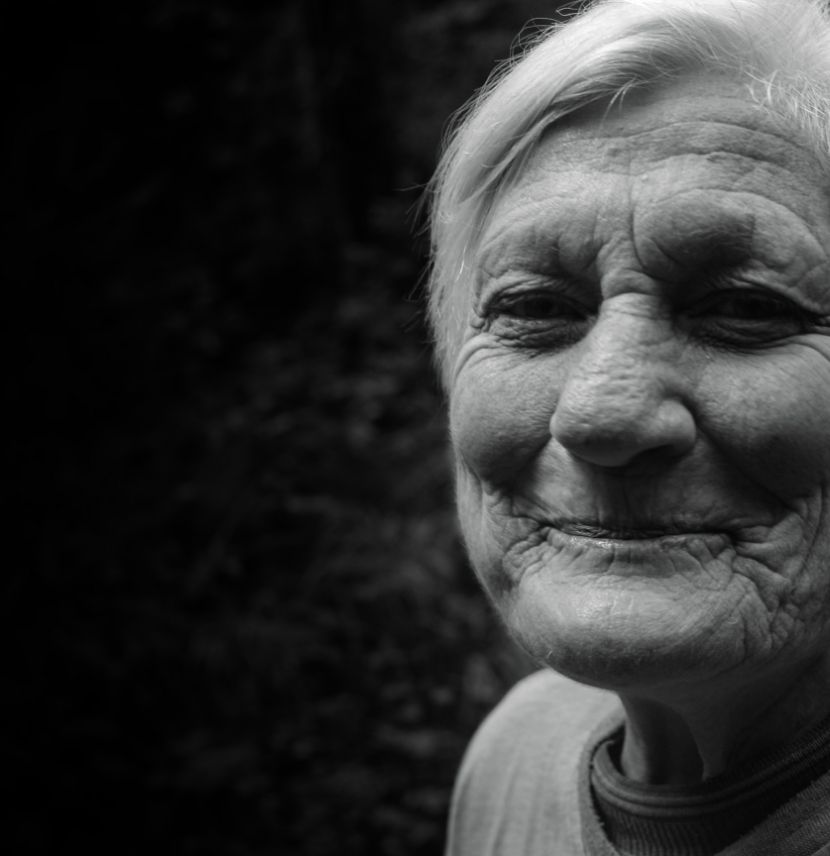They should be planning for retirement, not getting evicted from an apartment.
Our senior’s homeless population has more than doubled in the last five years. Over 50% of our current housing residents are seniors. Let’s build a Homefull Toronto.
The Problem That Can't Be Ignored
In Toronto alone, over 8,700 people don’t have a home today.
This is an impossible amount of time to wait without the safety and security of a place to call home and simply unacceptable in a city like ours. Toronto deserves better. We must find solutions to make Toronto Homefull.
Age is more than a number
While these current conditions may impact people at all socio-economic levels, one group is disproportionately at risk. Seniors. An alarming number of seniors in our city are lacking adequate support from family or their communities.
This is a critical issue that demands our attention and requires a specialized approach. Toronto’s senior population has more than doubled in the last 5 years.
Many of these seniors experience mental and physical health challenges, live on fixed incomes and must navigate more and more barriers to access the support they require as they age.
Toronto’s senior population has more than doubled in the last 5 years.
We are now facing a crisis of homeless seniors in our city.
More than 50% of the current residents in Homes First supportive housing are seniors. In fact, people aged 50 years and older are the fastest growing population who are accessing our services. We define “seniors” as 50 years and older because the challenges of homelessness speed up the aging process and increase vulnerability.
Many of these seniors are isolated, with few close friends or family nearby. Most feel overwhelmed by new technology and find it difficult to navigate – keeping them from accessing critical resources or care.
On top of age-related medical challenges, over 30% of those experiencing homelessness in Toronto live with mental illness. Seniors experiencing homelessness struggle more than any other homeless population with deteriorating mental health, social isolation and loneliness, estrangement from family, limited mobility, substance-use challenges, threats of violence and daily new trauma.
More than 50% of the current residents in Homes First supportive housing are seniors.

How we help our seniors
Food Security
Healthcare Access
From a very young age, Harry was exposed to substance abuse. Growing up in a household where both his parents struggled daily, it wasn’t long before Harry faced his own substance use challenges. At the age of 16, Harry left home. He spent years working odd jobs, couch surfing with friends or sleeping on the streets – something he told very few people. Eventually, Harry stopped working altogether. He had grown to distrust medical professionals and had become accustomed to the shame he felt when prodded about his drug use.
Harry was 51 when he was in his eighth year of waiting to receive housing; this is when he also started experiencing chest pain. It had been at least ten years since he’d seen a doctor. When he finally received the call from Homes First that he was accepted into a supportive housing unit, Harry quickly gathered his few possessions and moved in the next day.
Upon settling in, Harry’s case manager noticed the grey hue of his skin. She suggested that he see a doctor and offered to attend the appointment to support him further. Harry would come to appreciate that extra support: he was diagnosed with congestive heart failure just one week later.
Treatment of Harry’s condition is complex; Harry will need countless follow up appointments with specialists, prescriptions filled, and considerable support relating to his substance use challenges.
Without the housing and support from Homes First, Harry doesn’t think he would be with us today. “While the doctors are the ones treating my heart, it’s Homes First that saved my life.”
Social Connection

Home is so much more than a house. It’s where we host birthday parties, try new recipes, escape the chaos of daily life and dream about our future.
Not having a place to call home robs thousands in our city of the dignity and quality of life that we all expect and desire for ourselves and those we love.
Homelessness in Toronto is on the rise. We believe Toronto should be Homefull.
A city where everyone experiences the warmth, comfort, stability and security that a home provides. We believe a Homefull Toronto is a place where everyone experiences health and wholeness and has access to the opportunities, support and resources they need to thrive.
A city FULL of homes. A city FULL of hope.
Homefullness =
basic needs + safety + security + opportunity + community + hope.


Homefullness
basic needs + safety + security + opportunity + community + hope.
We can break the cycle of homelessness for Toronto’s most vulnerable seniors. We can create a Homefull Toronto.
We invite you to partner with us to help support Homes First’s largest campaign dedicated to Toronto’s most vulnerable seniors. With over half of our residents over the age of 50, our Homefull Seniors campaign addresses the three key needs of seniors in our housing facilities: food security, healthcare access and social connection. We believe that addressing these three key needs of our senior clients will pave the way for them to become Homefull for good. Here’s how we will do it:
Develop systems for senior clients to directly access nutritious food.
Develop the internal capacity to prepare, store and deliver frozen-ready meals to residents with the greatest food insecurity challenges. This will be achieved through our Centralized Food Program (CFP).
Facilitate community connections for residents seeking external supports such as foodbanks and food/ nutritional education.

COVID-19 has changed the way we all access primary healthcare. In order to help our seniors adapt to this new environment, we plan to develop a specialized team to assist seniors with booking virtual healthcare appointments, including helping to schedule in-person follow-ups.

Host digital literacy workshops to increase virtual connectivity and help seniors reconnect with family and friends.
Provide workshops to increase understanding of online services such as banking, grocery shopping and accessing government documents.
Increase partnerships with seniors’ activities in the area to provide affordable and free physical activity and social programs for clients.
Build community through enhanced social and recreation programming to lower isolation.

Fundraising goal and project costs
The Homefull Seniors campaign requires a $2,000,000 investment.
$1 Million Foundation contribution already secured for:
Food Security
Healthcare Access
Social Connection
ALREADY HALFWAY THERE!
Thanks to the generous commitment of one of our Foundation partners we are already halfway to our goal. The Sprott Foundation has committed $1,000,000 to improving the food security of Homes First’s most food insecure residents; our seniors are amongst this population.
You can make a difference too! Join us in building a Homefull Toronto for our seniors.
Expected Impact
Your generosity will increase housing stability and quality of life for vulnerable seniors. You will be meeting practical needs of access to food security, healthcare and social connection.
Beyond that, you will be creating infrastructure to ensure that seniors in need of housing have both a roof over their head and the resources they need to flourish. Ultimately, we are taking steps together to end chronic homelessness in the city of Toronto.
You will be creating a Homefull Toronto.
Why Now?
Why is this our biggest priority?
Seniors experiencing homelessness in Toronto have never been more vulnerable than right now. As the senior population rises, the rate of those experiencing homelessness increases every day and the gap between resources and needs is continuing to grow.
The housing crisis in Toronto is an overwhelming obstacle for seniors living on fixed incomes. 81,000 people in Toronto are waiting for subsidized housing and will remain on that list for years — some for more than a decade. Long term care housing options are competitive and hard to get into, especially for those who are struggling financially or need specialized care.
In addition to the lack of affordable or specialized housing for seniors, many are still wrestling with the long-term impacts of COVID-19. Isolation, loneliness, anxiety and barriers to services are very real challenges for many seniors.
Options for seniors living in poverty are decreasing as the demand grows exponentially.
Our seniors need us to act now.
Why Homes First?
For over 35 years, Homes First has been meeting the unique needs of Toronto’s most vulnerable homeless populations. Homes First is one of the largest providers of safe shelter, supportive housing and people-centred services in Toronto. We are committed to breaking the cycle of chronic homelessness.
On any given night, we provide a bed to over 1,600 individuals across six shelters, three temporary hotel sites and one emergency respite centre. We provide permanent supportive housing across 14 properties to over 425 people including children, youth, women, single parents, adults, seniors and large families.
We specialize in supporting those experiencing chronic homelessness and people with complex needs ranging from mental and physical health to substance use challenges. We support as many residents as possible by meeting their individual needs, improving their housing stabilization and increasing their personal mental well-being.
Through service integration and individualized planning, we are renewing hope, restoring dignity, reviving potential and saving people’s lives.
We are committed to meeting the emerging needs of our residents by designing and developing specific programs tailored to them with the purpose of improving quality of life and ensuring dignity.
We are deeply concerned about vulnerable seniors in Toronto. We have a plan. We need your help to transform lives.
